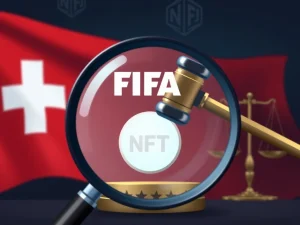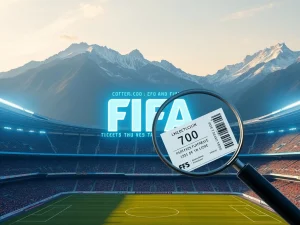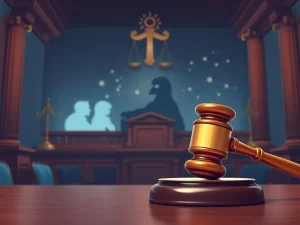NFT Fraud Conviction Overturned: Appeals Court Exposes Flawed Jury Instructions

In a shocking turn of events, a U.S. federal appeals court has overturned an NFT fraud conviction, exposing critical flaws in jury instructions that could reshape how courts handle crypto fraud cases. This landmark decision centers on Nathaniel Chastain, a former OpenSea product manager, whose case highlights the growing pains of applying traditional legal standards to the volatile world of digital assets.
Why the NFT Fraud Conviction Was Overturned
The appeals court ruled that the original trial failed to properly guide jurors in determining whether Chastain’s actions met the legal definition of fraud. Key issues included:
- Insufficient guidance on evaluating alleged misrepresentations
- Failure to clarify the distinction between market optimism and intentional deception
- Lack of specific instructions about NFT market volatility
The Crypto Fraud Case That Could Set a Precedent
Chastain’s case involved allegations that he misled an investor about the value of NFTs from the Fidenza collection. The appeals court’s decision doesn’t determine guilt but highlights procedural flaws that could affect future digital asset cases:
| Prosecution Argument | Defense Argument |
|---|---|
| Chastain exploited investor’s limited NFT knowledge | Transaction was legitimate market speculation |
| Intentional misrepresentation of NFT value | Standard business practices in volatile market |
Jury Instructions: The Critical Flaw in Digital Asset Cases
The appeals court emphasized that traditional fraud statutes may not adequately address the nuances of crypto transactions. Three key challenges emerged:
- Difficulty defining “material misrepresentation” in NFT markets
- Distinguishing between fraud and market speculation
- Applying securities laws to algorithmically generated assets
What This Means for Future Digital Assets Litigation
Legal experts suggest this ruling could force prosecutors to rethink their approach to crypto fraud cases. The decision may:
- Require more precise jury instructions in digital asset cases
- Force clearer definitions of fraud in crypto contexts
- Delay other pending NFT-related litigation
This groundbreaking case exposes the urgent need for legal frameworks that can keep pace with blockchain innovation. As NFTs and digital assets continue evolving, courts face mounting pressure to adapt traditional legal standards to this disruptive technology.
Frequently Asked Questions
What was the main reason for overturning the NFT fraud conviction?
The appeals court found the jury instructions insufficient for determining whether the defendant’s actions met the legal standard of fraud in the context of NFT transactions.
Does this mean Nathaniel Chastain is innocent?
No, the court didn’t rule on guilt or innocence. The decision addresses procedural flaws and sends the case back for potential retrial.
How might this affect other NFT fraud cases?
The ruling could set a precedent requiring more precise jury instructions and clearer definitions of fraud in digital asset cases.
What are the key challenges in prosecuting NFT fraud?
Main challenges include distinguishing between fraud and market speculation, and applying traditional fraud statutes to volatile, algorithmically generated assets.
Will prosecutors retry the case?
It remains uncertain whether prosecutors will pursue a retrial or adjust their legal strategy based on the appeals court’s findings.








